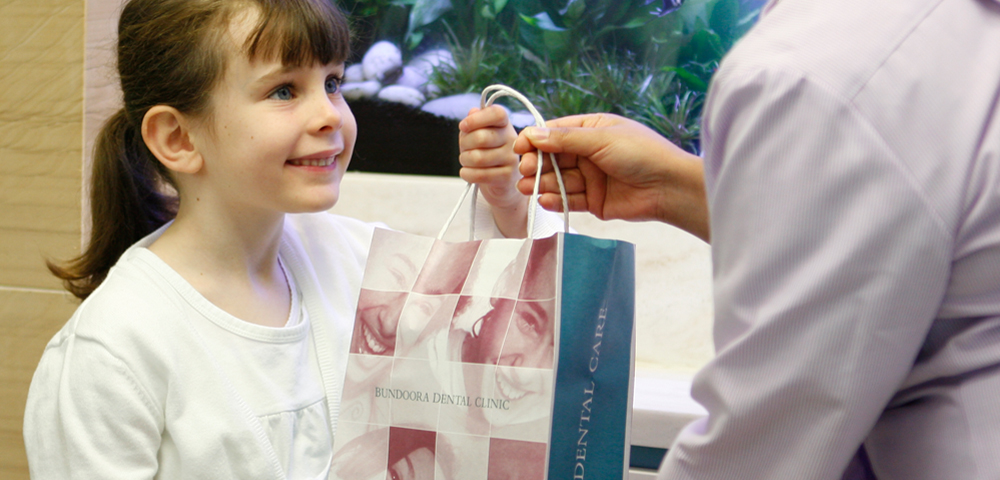
Caring for children
Many of our patients at Bundoora Dental Clinic have been visiting since they were children. It is important to start dental checkups when your children are young so they begin to understand the importance of their oral health and learn how to take care of their teeth. We recommend a visit every six months to maintain optimum oral health.
Child Dental Benefits Schedule
Bundoora Dental Clinic participates in the Medicare Child Dental Benefits Schedule for eligible children aged 2-17 years.
The total benefit entitlement is capped at $1,000 per child over a two calendar year period. The Child Dental Benefits Schedule is means tested and provides individual benefits for a range of services. Rebate services include diagnostic, preventive, endodontics and restorative services.
Payment for dental treatment
Bundoora Dental Clinic is a non-bulk billing practice and accepts payments by cash, cheque, credit card and EFTPOS.
Full payment is required on the day of service and a receipt will be issued to enable you to claim any rebate entitlement from Medicare.
How to prevent infant tooth decay
The best drinks for babies are breastmilk, formula or water. As soon as your baby's teeth appear, clean them with gauze or a soft face washer, wrapped around your fingers or brush them with a child sized, soft tooth brush. If using a dummy, avoid using any flavouring on the dummy and never clean a dummy in your own mouth or you risk transferring bacteria from your mouth to your baby’s mouth. Introduce a cup from about 6 months of age and try to cease bottle use from 12 months.
How to clean your child's teeth
Always try to clean your child's teeth twice a day, after meals and before bed. From 12 months of age you can start brushing your child's teeth with a soft tooth brush designed for children using tap water only or a non fluoride tooth paste.
From 18 months to 6 years you can start brushing your child's teeth with low fluoride toothpaste designed for children, using a pea sized amount.Parents will need to assist children to brush up until the age of 6 or 7.
Signs your child is teething
Some babies or toddlers may experience symptoms such as:
• red, swollen gums
• irritability or restlessness
• flushed cheeks or fever
• dribbling
• finger and fist sucking
All of these symptoms are relatively normal for children who are just growing their teeth. You can ease their pain and irritability with rusks or teething rings and rubbing the gums with a small amount of suitable teething gel to ease pain.
Your child will begin to lose baby teeth from about the age of 5 or 6. Children will lose their incisors first, followed by their molars.



